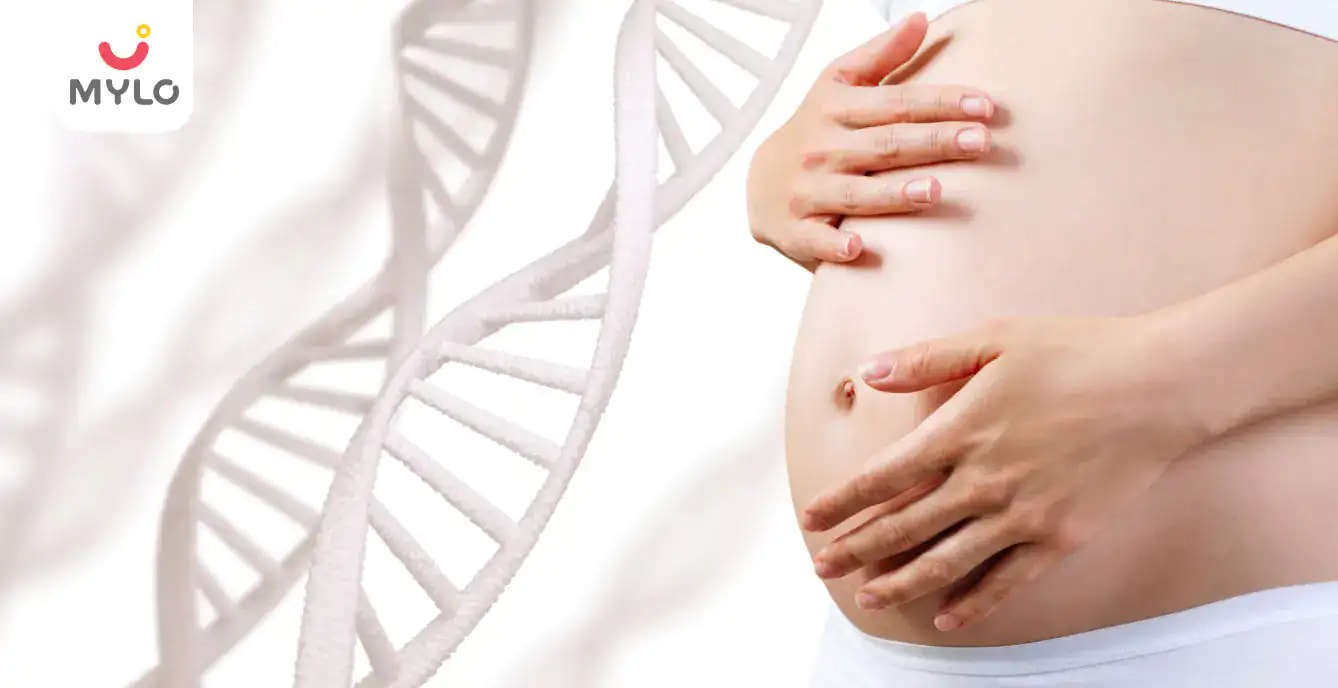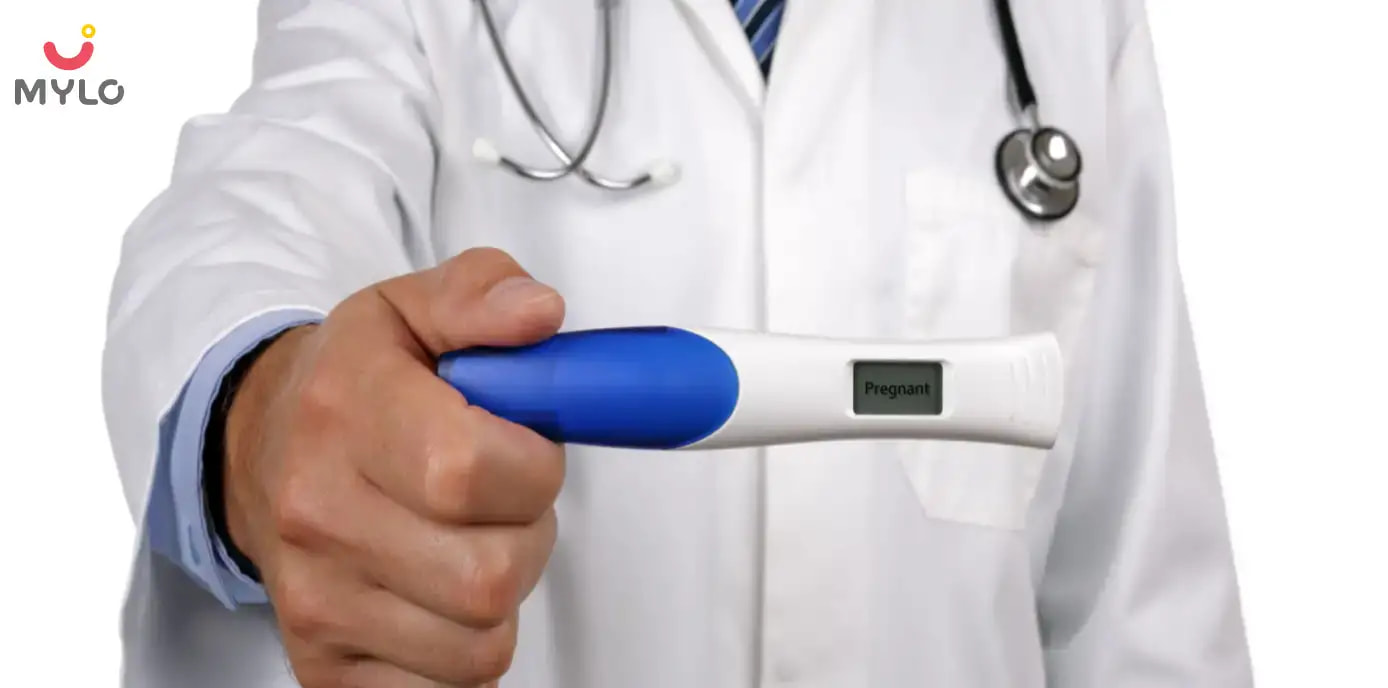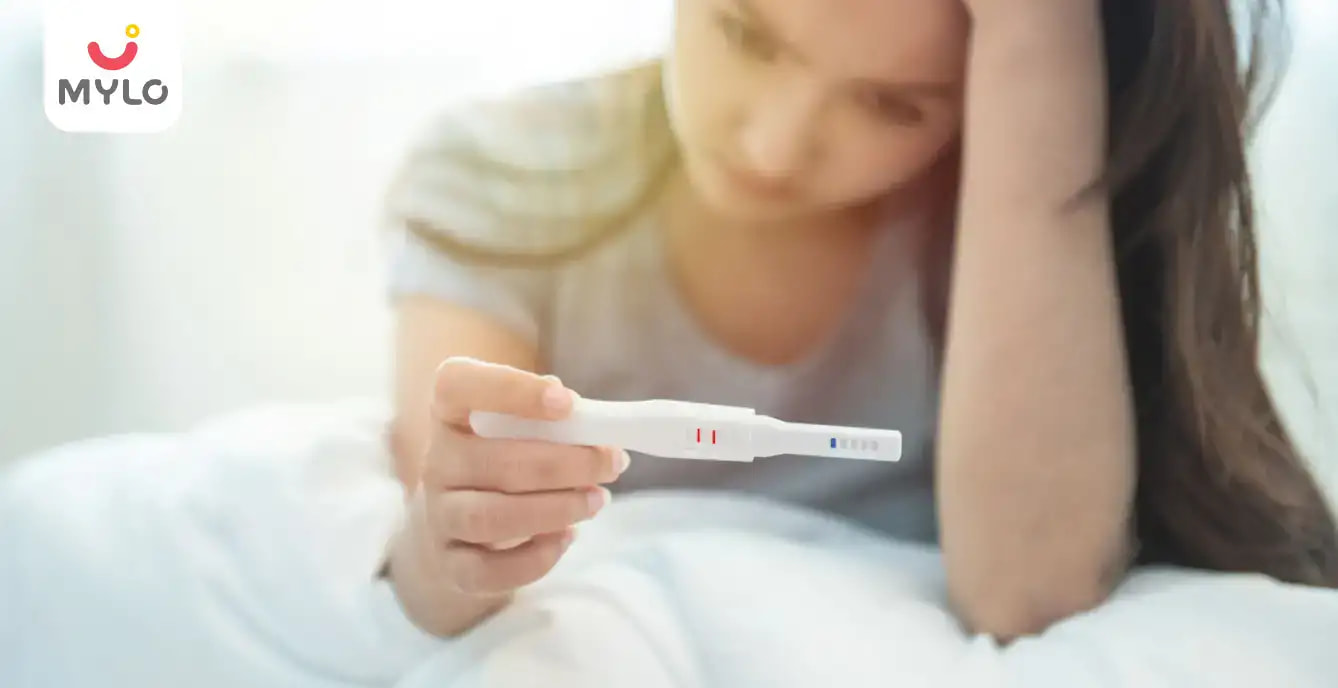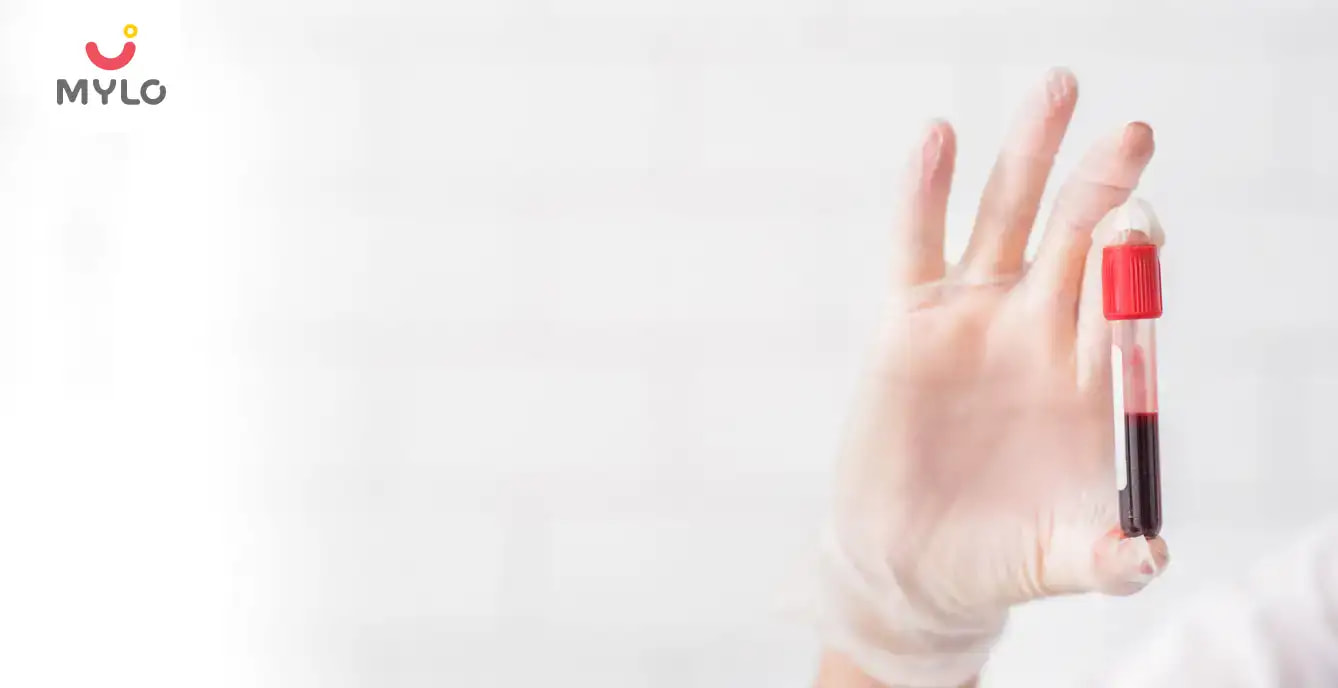Home

Miscarriage

What Is Chemical Pregnancy?
In this Article

Miscarriage
What Is Chemical Pregnancy?
Updated on 3 November 2023
Wondering what is a chemical pregnancy? It is a positive pregnancy test that uses chemicals, as opposed to a clinical pregnancy, in which your doctor may see your baby's growth through ultrasound.
Women in the past were less likely to discover they had a chemical pregnancy than now. Modern pregnancy tests are so sensitive that they detect a pregnancy three or four days before the first missed period.
Miscarriage occurs in more than half of all pregnancies. The majority are chemical pregnancies. However, determining the real number of chemical pregnancies that women have is difficult. Many of these pregnancies terminate before the woman has symptoms or misses her period. Most women who have a chemical pregnancy are unaware of it.
Even a miscarriage in the early stages of pregnancy can be distressing. If it occurs to you, let yourself time to recover and get the necessary help to deal with the loss.
What are the causes of chemical pregnancy?
In a chemical pregnancy, the embryo produces HCG (human chorionic gonadotropin), a hormone it needs to grow. Doctors use these hormone pregnancy tests to detect pregnancy. An embryo stops generating HCG when it stops growing.
During a chemical pregnancy, no one understands why an embryo stops growing. The embryo most likely stops developing due to a genetic makeup or DNA problem. An embryo may not implant or develop in the uterus lining. Consequently, your HCG levels drop, and pregnancy tests return negative.
What are the symptoms of chemical pregnancy?
- Your period is a week later than normal.
- After a positive pregnancy test, your period starts.
-
A pregnancy test is positive for a few weeks, then negative.
-
Your period is longer, and your menstrual cramps are more severe than usual.
-
You have a positive pregnancy test but no early pregnancy symptoms.
When to expect a period after a chemical pregnancy?
If you had a chemical pregnancy, your period usually starts 4 to 6 weeks after the early pregnancy loss.
What kind of treatment is there for a chemical pregnancy?
A chemical pregnancy does not always mean you won't be able to conceive or give birth to a healthy child. While there is no treatment for miscarriage, there are ways to assist you in conceiving.
If you've had several chemical pregnancies, your doctor may do tests to determine the underlying problem. If your doctor can cure the underlying reason, you may be able to avoid another chemical pregnancy.
If an untreated infection causes an early loss, for example, taking antibiotics to remove the infection may increase your chances of conceiving and having a healthy delivery. You may require surgery to achieve a healthy pregnancy if the loss is due to uterus problems.
You should also be aware that a chemical pregnancy isn't the only condition that triggers the production of the pregnancy hormone in the body. An ectopic pregnancy can also result in higher HCG levels. When the egg implants outside the uterus. Because an ectopic pregnancy can look like a chemical pregnancy, your doctor may order tests to rule it out.
How long after chemical pregnancy do you bleed
Ten to fourteen days after conception, around the time of the next expected period, some very light vaginal bleeding may occur. Fertilized egg implantation in the uterine wall causes bleeding.
How to prevent chemical pregnancy
- Manage stress.
- Take a healthy weight.
- Maintain a healthy diet.
- Daily iron and folic acid intake.
- Don't drink or smoke.
- Managing and controlling existing medical conditions like thyroid issues, blood diseases, and diabetes
- Exercise regularly.
How do you recover after a chemical pregnancy?
Any miscarriage may be difficult for both you and your partner. Even a very early pregnancy loss may be devastating, particularly if you've tried for a long time or undergone IVF. Emotional support is crucial during this period.
You may have cramps and bleeding for many days following the procedure. Your emotional recovery may need considerably more time. Friends and family, as well as your spiritual advisor, may help you through the grieving process.
Consult a doctor if loss overwhelms you. You may need mental health expert assistance to recover from the loss.
What is a chemical pregnancy after IVF?
After IVF and other fertility treatments, chemical pregnancies are common. Sperm fertilises the ovum with IVF. The fertility clinic implants your embryo. The embryo produces HCG post-implant. It will generate a positive pregnancy test; however, the embryo doesn't always grow.
1 in 4 IVF pregnancies is chemical. This high number may be due to doctors doing pregnancy tests 2 weeks after an IVF procedure.
How long after chemical pregnancy can you try again?
Many people choose to attempt another pregnancy after an early pregnancy loss immediately. Two weeks following a chemical pregnancy, you may ovulate and potentially become pregnant.
Does chemical pregnancy mean infertility?
Chemical pregnancies cause 50-75% of losses, although they don't indicate infertility. Many physicians see chemical pregnancies as positive indicators that you may and will get pregnant in the future.
It's crucial to remember that a false positive pregnancy test does not always imply a chemical pregnancy. False positives occur for several reasons. Chemical pregnancies originate from chromosome abnormalities or unsuccessful IVF. Working, exercising, having sexual intercourse, or using birth control does not induce pregnancy loss. If you're an advanced maternal age, have thyroid disease, or have a clotting disorder, you're more likely to have an early miscarriage.
Conclusion
This post covers what a chemical pregnancy is and what causes it, and other related information. A chemical pregnancy doesn't mean your body cannot have a healthy pregnancy. You can get the right treatment if you know the causes of an early miscarriage. Consult your doctor and go through your options. Your doctor may recommend support groups or counselling. These might be helpful if you need emotional assistance following a miscarriage.
References:
1. Dumitrascu, Mihai & Iliescu, Madalina & Petca, Razvan Cosmin & Sandru, Florica & Mehedintu, Claudia & Farcasanu, Patricia & Maru, Nicoleta & Chibelean, Calin & Petca, Aida. (2019). The Chemical Pregnancy. researchgate.net
2. Sallie Han. (2014). The Chemical Pregnancy: Technology, Mothering, and the Making of a Reproductive Experience: Journal of the Motherhood Initiative for Research and Community Involvement. jarm.journals.yorku.ca
Popular Articles:
How Much Bleeding Is Normal In Early Pregnancy | How To Increase HCG Levels In Early Pregnancy Naturally | How To Avoid Pregnancy After Missing Period Naturally | How To Avoid Pregnancy After Sex Home Remedies
Trending Articles:
How Many Days To Confirm Pregnancy | How To Stop Pregnancy After A Day | How To Make Sperm Stronger For Pregnancy | How To Check Pregnancy Kit At Home



Written by
Priyanka Verma
Priyanka is an experienced editor & content writer with great attention to detail. Mother to an 11-year-old, she's a ski
Read MoreGet baby's diet chart, and growth tips

Related Articles
RECENTLY PUBLISHED ARTICLES
our most recent articles

Diet & Nutrition
গর্ভাবস্থায় আলুবোখরা: উপকারিতা ও ঝুঁকি | Prunes During Pregnancy: Benefits & Risks in Bengali

Diet & Nutrition
গর্ভাবস্থায় হিং | ঝুঁকি, সুবিধা এবং অন্যান্য চিকিৎসা | Hing During Pregnancy | Risks, Benefits & Other Treatments in Bengali

Women Specific Issues
স্তনের উপর সাদা দাগ: লক্ষণ, কারণ এবং চিকিৎসা | White Spots on Nipple: Causes, Symptoms, and Treatments in Bengali

Diet & Nutrition
গর্ভাবস্থায় পোহা: উপকারিতা, ধরণ এবং রেসিপি | Poha During Pregnancy: Benefits, Types & Recipes in Bengali

Diet & Nutrition
গর্ভাবস্থায় মাছ: উপকারিতা এবং ঝুঁকি | Fish In Pregnancy: Benefits and Risks in Bengali

Diet & Nutrition
গর্ভাবস্থায় রেড ওয়াইন: পার্শ্ব প্রতিক্রিয়া এবং নির্দেশিকা | Red Wine During Pregnancy: Side Effects & Guidelines in Bengali
- ইনার থাই চ্যাফিং: কারণ, উপসর্গ এবং চিকিৎসা | Inner Thigh Chafing: Causes, Symptoms & Treatment in Bengali
- গর্ভাবস্থায় ব্রাউন রাইস: উপকারিতা ও সতর্কতা | Brown Rice During Pregnancy: Benefits & Precautions in Bengali
- Velamentous Cord Insertion - Precautions, Results & Safety
- Unlock the Secret to Flawless Skin: 7 Must-Have Qualities in a Face Serum
- Unlock the Secret to Radiant Skin: How Vitamin C Serum Can Transform Your Complexion
- Gender No Bar: 10 Reasons Why Everyone Needs a Body Lotion
- Unlock the Secret to Radiant Skin How to Choose the Perfect Body Lotion for Your Skin Type
- Top 10 Reasons to Apply a Body Lotion After Every Bath
- Communication in Toddlers: Milestones & Activities
- How to Improve Vocabulary for Toddlers?
- A Comprehensive Guide to Understanding Placenta Accreta
- Vulvovaginitis in Toddlers Causes, Symptoms and Treatment
- A Comprehensive Guide to Understanding Cerebral Palsy in Children
- Bitter Taste in Mouth During Pregnancy: Understanding the Causes and Remedies


AWARDS AND RECOGNITION

Mylo wins Forbes D2C Disruptor award

Mylo wins The Economic Times Promising Brands 2022
AS SEEN IN
















- Mylo Care: Effective and science-backed personal care and wellness solutions for a joyful you.
- Mylo Baby: Science-backed, gentle and effective personal care & hygiene range for your little one.
- Mylo Community: Trusted and empathetic community of 10mn+ parents and experts.
Product Categories
baby carrier | baby soap | baby wipes | stretch marks cream | baby cream | baby shampoo | baby massage oil | baby hair oil | stretch marks oil | baby body wash | baby powder | baby lotion | diaper rash cream | newborn diapers | teether | baby kajal | baby diapers | cloth diapers |








